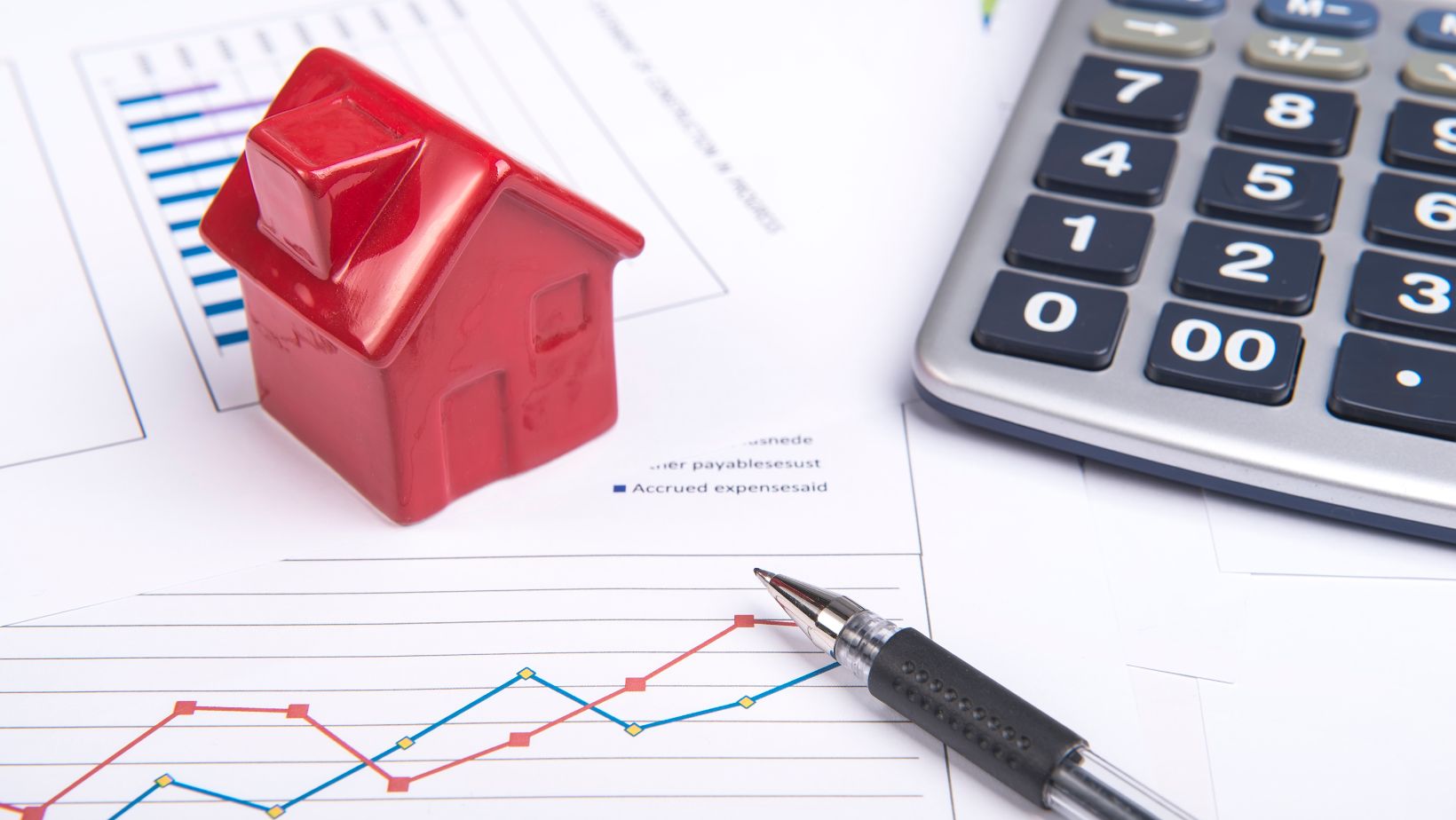Increasing interest rates can have a significant impact on the housing market. As interest rates rise, the cost of borrowing money increases, making it more expensive for individuals to purchase homes. This can lead to a decrease in demand for homes, which can cause prices to drop.
For homeowners who already have a mortgage, increasing interest rates can also have an impact on their monthly payments. As interest rates rise, the cost of borrowing money increases, which means that homeowners with adjustable rate mortgages could see their monthly payments increase. This can put a strain on household budgets and make it more difficult for homeowners to keep up with their mortgage payments.
It’s important to note that the impact of rising interest rates on the housing market can vary depending on a number of factors, including the strength of the economy and the overall demand for homes. However, it’s clear that increasing interest rates can have a significant impact on homeowners and potential homebuyers alike.
- Impact of Rising Interest Rates on Mortgage Payments
- Effect on Home Equity Loans
- Influence on Property Market
- Strategies to Mitigate the Impact of Rising Interest Rates
- Long-Term Effects of Increasing Interest Rates
- Conclusion
Impact of Rising Interest Rates on Mortgage Payments
When interest rates rise, the cost of borrowing money increases, which can have a significant impact on mortgage payments. Homeowners with adjustable-rate mortgages may feel the effects of rising interest rates immediately, while those with fixed-rate mortgages may not notice the effects until it’s time to refinance.
For example, let’s say a homeowner has a $250,000 mortgage with a fixed interest rate of 4%. Their monthly mortgage payment would be $1,193.54. However, if interest rates rise to 5%, their monthly mortgage payment would increase to $1,342.05, an increase of $148.51 per month.
Homeowners with adjustable-rate mortgages may see even larger increases in their monthly mortgage payments. This is because adjustable-rate mortgages typically have lower interest rates at the beginning of the loan term, but the interest rate can increase over time.
It’s important for homeowners to understand the potential impact of rising interest rates on their mortgage payments and to plan accordingly. This may include budgeting for higher monthly payments or considering refinancing to a fixed-rate mortgage to lock in a lower interest rate.
Overall, rising interest rates can have a significant impact on homeowners’ mortgage payments, and it’s important for homeowners to stay informed and prepared for potential changes in interest rates.
Effect on Home Equity Loans
Increasing interest rates can affect home equity loans in several ways. Home equity loans are typically fixed-rate loans, meaning that the interest rate is set at the time of the loan and does not change. However, some home equity loans may have a variable interest rate, which can change over time.

If interest rates increase, the monthly payments on a home equity loan with a variable interest rate will also increase. This can make it more difficult for homeowners to make their monthly payments, which can lead to default and foreclosure.
In addition, increasing interest rates can make it more difficult for homeowners to qualify for a home equity loan. Lenders may require a higher credit score or a lower debt-to-income ratio to qualify for a home equity loan when interest rates are high.
Finally, increasing interest rates can affect the amount of equity that homeowners have in their homes. Home equity is the difference between the value of a home and the amount of money owed on the mortgage. If interest rates increase, the value of homes may decrease, which can reduce the amount of equity that homeowners have in their homes.
Overall, increasing interest rates can have a significant impact on home equity loans. Homeowners should carefully consider the potential effects of increasing interest rates before taking out a home equity loan.
Influence on Property Market
Increasing interest rates can have a significant impact on the property market. When interest rates rise, it becomes more expensive for people to borrow money to buy a home. This can lead to a decrease in demand for homes, which can cause home prices to fall.
In addition, rising interest rates can also make it more difficult for people to afford their monthly mortgage payments. This can lead to an increase in the number of foreclosures, which can further drive down home prices.
However, it’s important to note that the impact of rising interest rates on the property market can vary depending on a variety of factors, including the overall state of the economy, the availability of credit, and the level of demand for housing in a particular area.
Overall, it’s important for homeowners and potential homebuyers to be aware of the potential impact of rising interest rates on the property market, and to carefully consider their options when it comes to buying or selling a home.
Strategies to Mitigate the Impact of Rising Interest Rates
When interest rates rise, it can increase the cost of borrowing money for a home. However, there are strategies that homeowners can use to mitigate the impact of rising interest rates.
One strategy is to refinance the mortgage to a lower interest rate. This can help reduce the monthly payments and lower the overall cost of the loan. Homeowners can also consider switching to a fixed-rate mortgage to avoid fluctuations in interest rates.
Another strategy is to make extra payments towards the principal of the mortgage. This can help reduce the amount of interest paid over the life of the loan and shorten the repayment period. Homeowners can also consider making bi-weekly payments instead of monthly payments to further reduce the interest paid.
Homeowners can also consider downsizing to a smaller home or renting out a portion of their home for additional income. This can help reduce the overall cost of the mortgage and provide additional funds to pay off the loan faster.
It is important for homeowners to carefully consider their options and consult with a financial advisor before making any major decisions regarding their mortgage. By taking proactive steps to mitigate the impact of rising interest rates, homeowners can better protect their investment and ensure long-term financial stability.
Long-Term Effects of Increasing Interest Rates
When interest rates increase, the long-term effects on homeowners can be significant. One of the most immediate effects is the increase in mortgage payments. As interest rates rise, the monthly payment on a mortgage will also increase. This can make it more difficult for homeowners to afford their monthly payments, and can lead to an increase in foreclosures.
Another long-term effect of increasing interest rates is the decrease in home values. As mortgage payments become more expensive, demand for homes decreases, leading to a decrease in home values. This can be particularly problematic for homeowners who are looking to sell their homes, as they may not be able to get as much money for their homes as they would have if interest rates had remained low.
In addition to the decrease in home values, increasing interest rates can also lead to a decrease in home equity. As interest rates rise, the amount of money that homeowners owe on their mortgages will increase, while the amount of equity they have in their homes will decrease. This can be problematic for homeowners who are looking to refinance or take out a home equity loan, as they may not have as much equity in their homes as they would have if interest rates had remained low.
Overall, increasing interest rates can have a significant impact on homeowners. While the immediate effects may be felt in the form of higher mortgage payments, the long-term effects can be even more significant, leading to a decrease in home values and home equity.
Conclusion
In conclusion, increasing interest rates can have a significant impact on homeowners. As interest rates rise, the cost of borrowing money increases, making it more expensive for homeowners to take out loans. This can result in higher mortgage payments, making it more difficult for homeowners to afford their homes.

However, it’s important to note that interest rates are just one factor that can affect the housing market. Other factors, such as supply and demand, economic growth, and government policies, can also play a role in determining the health of the housing market.
Overall, homeowners should be aware of the potential impact of rising interest rates on their finances. By staying informed and taking steps to manage their finances effectively, homeowners can minimize the impact of interest rate increases and ensure that they are able to maintain their homes for years to come.















